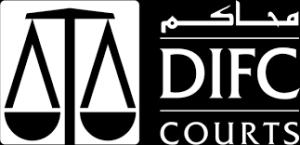DIFC Bank Incorporation Banking Licence
DIFC Bank Incorporation Banking Licence
Obtaining a banking license in the Dubai International Financial Centre (DIFC) involves several steps and requirements, as it is a well-regulated financial jurisdiction.
Setting up a bank or financial institution in the DIFC provides the following advantages:
Regulatory Environment: The DIFC has a robust regulatory framework aligned with international standards, providing a stable and secure environment for financial institutions. It follows English common law, which is familiar to many international investors and provides clarity and predictability in legal matters.
Strategic Location: Dubai is strategically located between Europe, Asia, and Africa, making it an ideal hub for banking and financial services. Being in the DIFC allows banks to tap into the rapidly growing economies of the Middle East, Africa, and South Asia.
Business Friendly: The DIFC offers a business-friendly environment with 100% foreign ownership allowed, no restrictions on foreign exchange or capital repatriation, and a simple tax regime with zero percent tax on profits for a period of 50 years.
Infrastructure and Facilities: DIFC provides state-of-the-art infrastructure and facilities, including modern office spaces, advanced telecommunications, and connectivity infrastructure, making it conducive for banking operations.
Access to Talent: Dubai is a cosmopolitan city with a diverse pool of talent from around the world. Setting up in the DIFC allows banks to access this talent pool, including experienced professionals in finance, law, and technology.
Networking Opportunities: Being part of the DIFC ecosystem provides banks with access to a network of financial institutions, law firms, consultancy firms, and other service providers, facilitating collaboration and business opportunities.
International Reputation: DIFC has gained international recognition as a leading financial centre in the region, which can enhance the reputation and credibility of banks operating within its jurisdiction.
Supportive Government: The government of Dubai is supportive of the financial services industry and has made significant investments in infrastructure and regulatory frameworks to promote the growth of the sector.
Banking License
If you’re looking to acquire a license to operate a bank within the DIFC, you must obtain approval from the Dubai Financial Services Authority (DFSA). This regulatory body oversees the financial activities within the DIFC and plays a pivotal role in the issuance of banking licenses, ensuring adherence to stringent standards and regulations.
It’s important to note that banking activities within the DIFC fall under the Category 1 license, which encompasses a wide range of financial services. To qualify for this license, applicants must meet specific criteria, including the fulfilment of a substantial base capital requirement. Currently, the minimum base capital mandated for a Category 1 banking license stands at $10 million USD. This capital serves as a financial cushion, ensuring the stability and resilience of the banking institution in the dynamic and competitive landscape of the DIFC.
Beyond the financial aspect, the application process also involves a meticulous evaluation of the applicant’s operational structure, risk management frameworks, corporate governance practices, and compliance procedures. The DFSA scrutinises every aspect of the prospective banking institution to ascertain its capability to operate effectively within the DIFC while maintaining the highest standards of integrity, transparency, and accountability.
Additionally, acquiring a banking license necessitates the establishment of a robust team comprising professionals with diverse expertise ranging from banking and finance to legal and compliance. The presence of such personnel not only enhances the credibility of the applicant but also demonstrates their commitment to operating in accordance with regulatory requirements and best practices.
Many personnel are also necessary for the approval of this license
• Board of Directors
• Senior Executive Officer
• Finance Officer
• Chief Risk Officer
• Compliance Officer
• MLRO (Money Laundering Reporting Officer)
• Internal Auditor
Throughout the application process, close collaboration and communication with the DFSA are imperative. Applicants may need to provide additional documentation, respond to queries, or participate in meetings or interviews to address any concerns or clarifications raised by the regulatory authority. This interactive approach fosters transparency, trust, and mutual understanding between the applicant and the DFSA, ultimately expediting the approval process.
Contact Us
Monarch Solicitors are approved part 1 and 2 practitioners within the DIFC and can help you in submitting all of the required information to obtain approval from the DFSA. Our committed team stands ready to offer the guidance and assistance necessary to meet your legal requirements efficiently. Book a consultation today to delve into your case and discover how we can help you accomplish your goals.

FAQ
To obtain a banking license in the DIFC, institutions must comply with several key requirements, including demonstrating robust financial health, having a credible business plan, and showing evidence of compliance with the DIFC’s regulatory standards, which are in line with international best practices. Applicants must also have a minimum capital requirement, which varies depending on the type of banking license sought (e.g., wholesale, retail, or investment banking). Additionally, the management and major stakeholders must meet fit and proper criteria to ensure they are suitable to run a financial institution.
The DIFC offers different types of banking licenses, catering to various banking activities. These include:
- Wholesale Banking License: Allows banks to provide services primarily to corporate clients and institutions rather than retail customers.
- Retail Banking License: Enables banks to offer financial services to the general public, including deposits, personal loans, and credit facilities.
- Investment Banking License: Permits banks to engage in activities such as securities trading, managed portfolios, and providing advice on corporate finance matters.
Each type of license has specific regulatory requirements and capital adequacy rules, reflecting the nature of the banking activities permitted under each category.
Related Articles
Solicitors you can trust
Client satisfaction is paramount to use so we appreciate your feedback as it allows us to continually improve the service we provide













